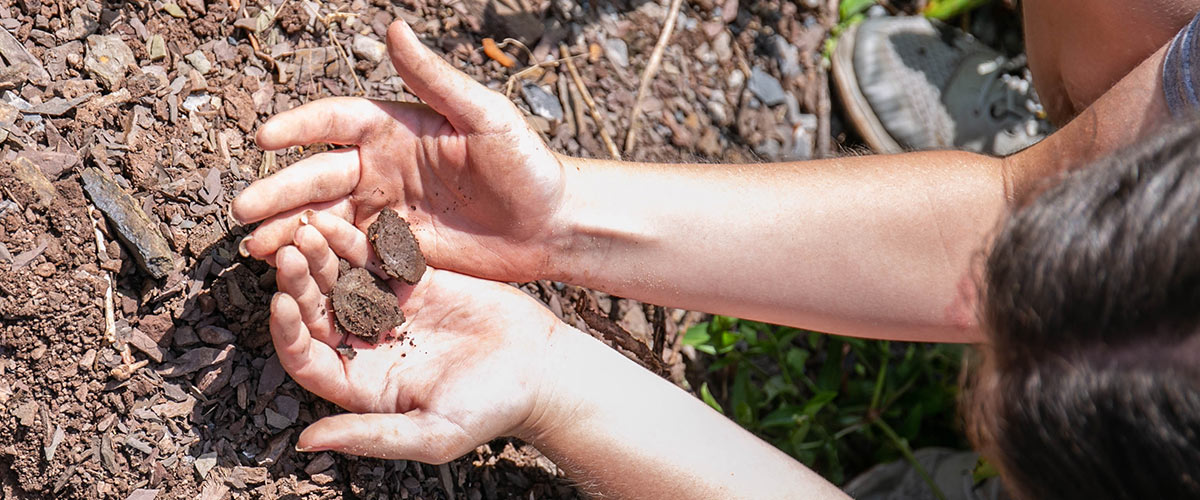REQUIRED COURSES
Take the following courses:
ESS-100 Environmental Systems I
4 CreditsN, WK-SP, CTGISPre-Req or Co-Req: FYC-101 or EN-110 or EN-109.
ESS-110 Environmental Systems II
3 CreditsN, SW-LEPrerequisite or corequisite: FYC-101 or EN-110 or EN-109. (NOTE: ESS-100 is not a prerequisite for ESS-110.)
BI-101 General Biology I
4 Credits
BI-300 General Ecology
3 CreditsNPrerequisites: BI-101 and BI-102. Corequisite: BI-301.
BI-301 General Ecology Lab
1 CreditsNCorequisite: BI300
BI-360 Vertebrate Zoology
3 CreditsNSuggested corequisites: BI361. Prerequisites: BI105 and Ecology/Biology related POE.
BI-361 Vertebrate Zoology Lab
2 CreditsNCorequisite: BI360
ESS-325 Conservation Biology
3 CreditsS, NPrerequisites: ESS-100 or BI-101 or BI-105.
ESS-224 Wildlife Mgmt
3 CreditsNPrerequisites: ESS100 and BI105 and BI121. A special course fee is assessed.
ESS-330 Geographical Information Systems
4 CreditsCTGISNote: A special course fee is assessed. Prerequisite: ESS100.
PLANT BIOLOGY
Complete one of the following options below:
OPTION 1:
4 CreditsNPrerequisites: BI105. Note: A special course fee is applied.BI-327 Botany
OPTION 2:
ESS-340 Forestry
3 CreditsN, CTGISPrerequisites: ESS100.
OPTION 3:
3 CreditsNCorequisite: BI326. Prerequisites: BI105 and BI121 and Junior or Senior standing. 1 CreditNCorequisite: BI325BI-325 Plant Ecology
BI-326 Plant Ecology Lab
CHEMISTRY REQUIREMENT
Complete one of the following options below:
OPTION 1:
3 CreditsNCorequisite CH143 1 CreditsN, QSCH142 is a corequisite of this course. A lab fee is associated with this course. 3 CreditsNPrerequisite: CH-142 1 CreditN, QSPrerequisite: CH-143. A lab fee is associated with this course.CH-142 Integrated Chemistry Principles I
CH-143 Integrated Chem Principles I Lab
CH-144 Integrated Chemistry Principles II
CH-145 Integrated Chemistry Principles II Lab
OPTION 2:
3 CreditsNCorequisite CH143 1 CreditsN, QSCH142 is a corequisite of this course. A lab fee is associated with this course. 3 CreditsN CH-142 Integrated Chemistry Principles I
CH-143 Integrated Chem Principles I Lab
GL-126 Environmental Geochemistry
RESOURCE POLICY/MANAGEMENT
Take one of the following courses:
3 CreditsNPrerequisites: ESS100 and BI105 and BI121. A special course fee is assessed. 3 CreditsS, CTGISPrerequisites: ESS-100 or PS-110. Must have sophomore standing or above.ESS-324 Natural Resource Management
ESS-337 Environmental Law
MATHEMATICS/STATISTICS
Take the following course:
3 CreditsN, QS, CTGES, CTGISPrerequisites: Sophomore standing and permission of the instructor.ESS-230 Environmetrics
Take one of the following courses:
4 CreditsN, QS, CTGESPrerequisites: BI106 or ESS100 4 CreditsQS(Lec/Lab; 4 cr hr; Spring years; pre-req ESS 110, ESS 230-Environmetrics, or consent) 4 CreditsN, QM 4 CreditsN, QS, WK-SPPrerequisite: FYC-101 or EN-110 or EN-109BI-305 Biostatistics
ESS-335 Quantitative Ecology
MA-130 Calculus I
MA-205 Elementary Statistics
CAPSTONE
Take one of the following courses:
ESS-400 Senior Capstone I
1-3 CreditsS, CTGISPrerequisite: ESS200 and Senior Standing or permission of the instructor.
ESS-401 Senior Capstone II
1-3 CreditsN, S, CTGISPrerequisites: ESS100 and Junior or Senior standing or permission.
Raystown Field Station: The Raystown Field Station provides students with a unique setting to study and do research. Residential programs are available at the station each semester. The curriculum offered during the spring semester is tailored to fit the needs of the Wildlife Conservation POE. Some possible schedules to incorporate the field station semester into your POE are listed here - for students entering as freshmen on an even year, and for students entering as freshmen on an odd year. The Station also offers a summer program that focuses on providing students with specialized zoology courses needed to certify as an associate wildlife biologist from The Wildlife Society. Details on the course offerings at the Station can be accessed at the official website of the Raystown Field Station.
Wildlife Certification: The Wildlife Society, the professional organization for wildlife educators, managers and others who work to study, conserve, and manage wildlife and its habitat. The Wildlife Society recognizes professional credentials through a certification process, and the details of this process can be accessed at the official Wildlife Society website.
Juniata College offers all of the courses required for certification as an Associate Wildlife Biologist. Since the requirements for certification are more extensive than the Wildlife Conservation POE, it would require more planning to complete in 4 years. To help with the planning, here is a possible schedule for certification.
POE Credit Total = 54-56
Students must complete at least 18 credits at the 300/400-level. Any course exception must be approved by the advisor and/or department chair.
The Wildlife Conservation POE is designed to provide students with both the practical skills and the theoretical knowledge necessary to work as a professional in the field of wildlife conservation, using a multi-disciplinary approach to the study of wild animals and their habitats. Students have the option of selecting from a variety of courses offered at Juniata, including wildlife biology and management, zoology, botany, chemistry, and mathematics.
 skip to content
skip to content




